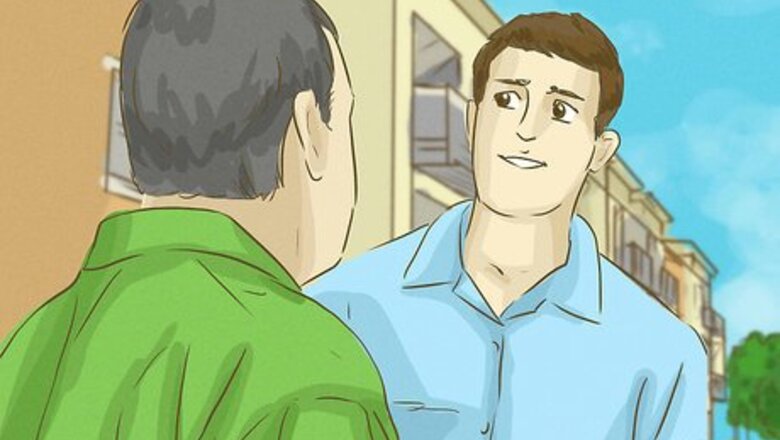
views
Identifying Neighborhood Drug Activity
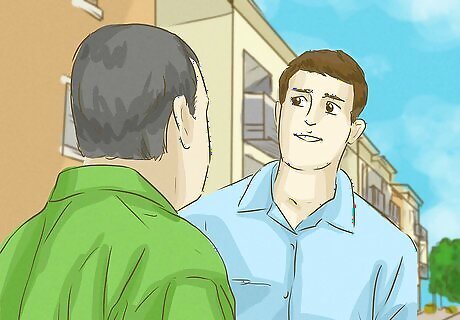
Talk to your neighbors and other property owners in the area. It will be easier to identify, stop, and prevent drug activity in your neighborhood if you work together. Your neighbors may have noticed things you haven’t, and vice versa.
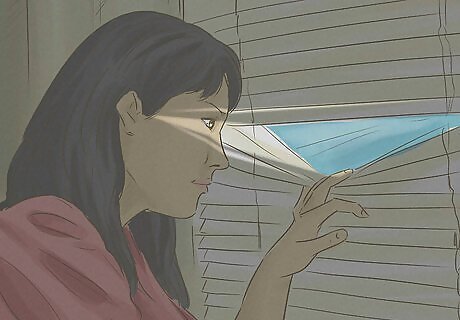
Watch for suspicious activity. If you suspect that there are drug dealings going on in your neighborhood, look for warning signs. Visitors at strange hours, blocked-up windows, and odd smells may be signs of drug activity. Excessive foot traffic to and from a house and loitering may be signs that illicit activity is occurring. Another suspicious pattern is the presence of many cars that stop at the house for a short period of time and then leave. Other possible signs of drug activity include graffiti and gang activity in the area, although these are not always linked.
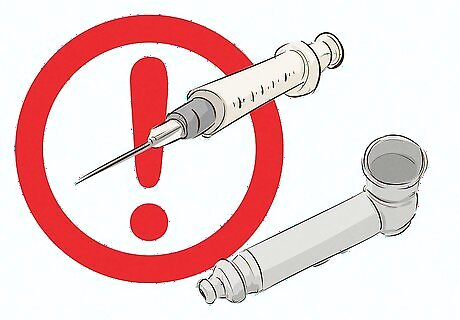
Keep an eye out for drug paraphernalia. Surprisingly, people can be careless about concealing drug paraphernalia such as hypodermic needles and pipes, even when a police presence has been established in the neighborhood. If you see signs of these materials, call the police. If you find evidence of drug paraphernalia, don't collect it or look around for additional materials. Take note of where you found it, what type of paraphernalia it was, what time of day you discovered it, and on what date, and report those details to the police.
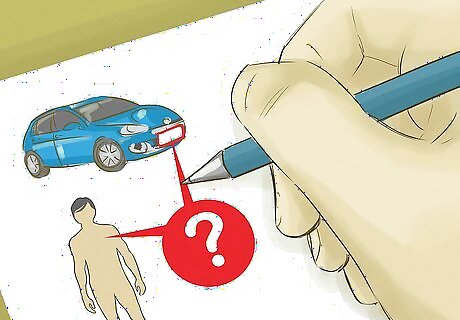
Record as much detail as you can. Always stay safe and don’t approach potential dealers, but gathering details about the activities you observe can help police take the proper action. If the drug dealer lives nearby, you can often document activities from the safety of your own home. If you observe suspicious traffic activity, take notes of license plate numbers, car models and colors, and approximate times of visits. If you are concerned about a particular individual, write down a detailed description including height, build, hair color, and any identifying features. Also include the circumstances that have caused your suspicion. If you feel that the situation is dangerous, be cautious. Do not openly collect information, take photographs, or do other things that might provoke a hostile dealer. Remember: if they are operating in your neighborhood, they may know who you are.
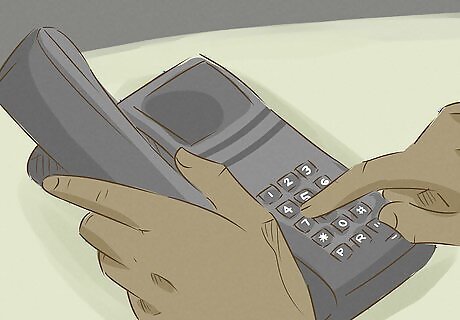
Contact the police. You can choose to remain anonymous if you will feel safer that way. Provide the police with as much detail as possible about the situation you’ve observed: where you believe drug dealers are operating, what they look like, when their customers come by, how many cars you’ve seen, etc. Call from a safe place. Don't place a call where potential dealers can hear or see you. Don't tell suspected dealers that you will call the police. Always contact the police and allow them to handle drug activities. Attempting to stop these crimes yourself may cause you or others harm. It may also cause difficulties in prosecuting criminal cases related to the activity later. Don't be afraid to reach out to police! You never know what piece of information is going to solve a crime or crack a case.
Reducing Neighborhood Drug Activity
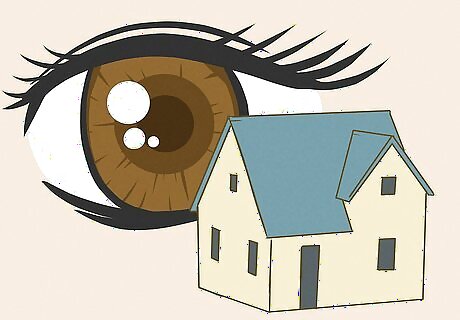
Start a Neighborhood Watch. Neighborhood Watches are often very successful in eliminating drug dealers from your neighborhood. They can help reduce criminal activity by creating an environment without opportunities for things like drug deals. However, it’s important to work with the police so that Watch members are properly trained and informed. Post signs and publicize the presence of your Neighborhood Watch. Knowing that the area is under observation will often persuade dealers to move out of your neighborhood to an area that is less patrolled. Never attempt to apprehend a drug dealer yourself. This only creates a situation where people could be seriously harmed or even killed.
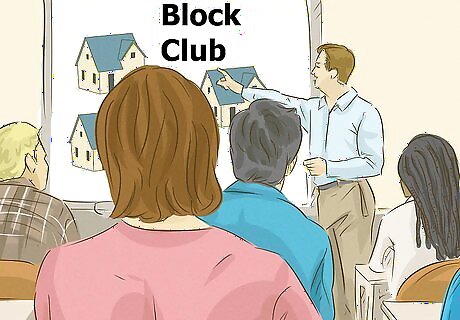
Form a “block club.” Having your whole community work together will be much more efficient than if you try to take action yourself. Block clubs have historically had a significant impact on getting rid of neighborhood drug dealers. Get together with neighbors and arrange for “positive loitering,” where members of the club do things like sweep the streets, pick up litter, and do other activities near where drugs are sold. The constant presence of people may dissuade drug dealers that operate in public places. Go to community meetings together. Many communities have safety training meetings, police meetings, and other events and activities where you can learn more about how to keep your neighborhood safe.
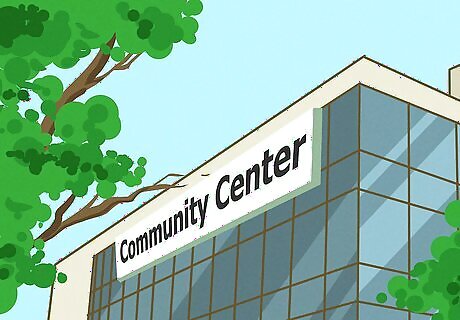
Meet safely to discuss problems. If your neighborhood is rough, it may be safer to avoid having Neighborhood Watch or block club meetings in that area. Instead, look for a public location such as a church or community center, or even a small local business. Even meeting a few blocks away can provide more safety for your members. Definitely avoid having meetings at any one individual's house, as this could provide dealers with a target for revenge.
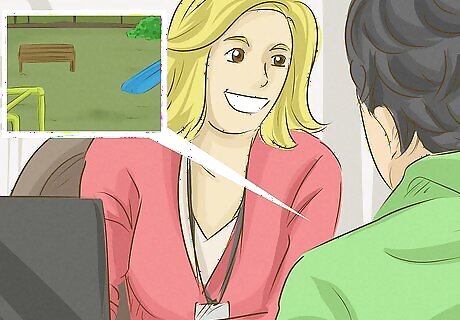
Ask about local improvements. Areas such as vacant lots are prime territory for drug dealers. Contact your local officials to see if lots can be turned into parks or playgrounds. Your community may even be able to pitch in to beautify an area. Eliminating potential dealing spots will help drive dealers out of your neighborhood.
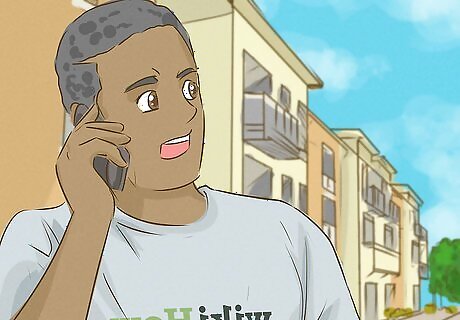
Contact the property owner. If the property where you believe drug dealing is occurring is a rental, contacting the person in charge of the property may help them take action. If you don’t know who is in charge of the property, your local tax office can usually provide you with information about the owner, landlord, or property manager.
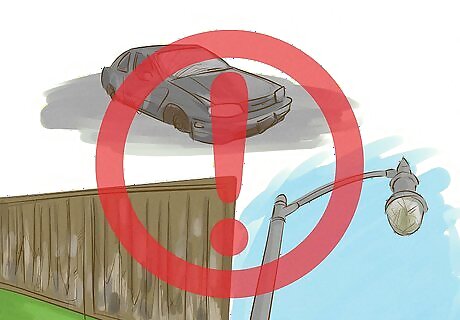
Contact your municipal authorities about environmental problems. Things such as broken streetlights, abandoned cars, and degraded fences can provide opportunities for drug dealers to thrive. Taking actions such as getting street lights repaired and abandoned vehicles towed are small fixes, but they can have a big effect.
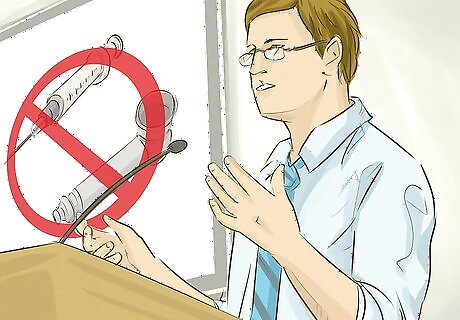
Identify safe programs to help eliminate drug dealers. Many local law enforcement agencies work together with the community in specific programs, such as CrimeStoppers and "drug dealer eviction" programs, to help eliminate drug activity. Ask about how to work with these established programs to ensure everyone's safety.
Preventing Neighborhood Drug Activity
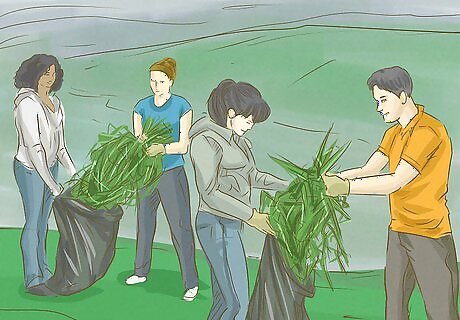
Promote community spirit. Drug dealers look for locations where neighbors don’t talk to each other and where people tend to be isolated. This allows them to more easily intimidate people who notice them. A strong, active, positive community is one of the best deterrents for drug dealers. Hosting activities such as community cook-outs, block parties, and other events will help you get to know your neighbors and strengthen your community.
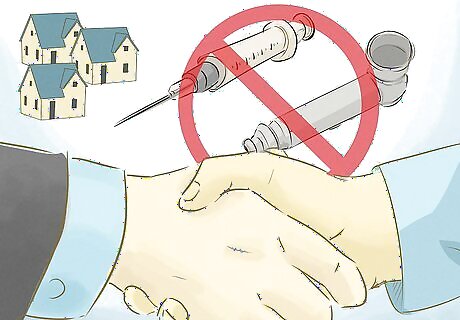
Work with small businesses, local offices, and churches. See if they will help clean up and refurbish rundown storefronts and parking lots. These clean-ups could even employ people who might otherwise turn to drugs.
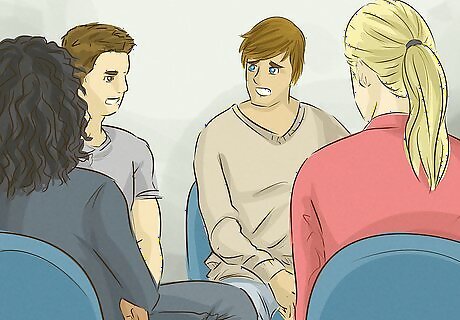
Develop a youth center in your neighborhood. Sometimes, young people get involved in drugs because they don’t see better options. A youth center can provide alternative activities and opportunities for young people. Work with local churches, businesses, social services, and police to provide resources and training. Young people can be very effective peer anti-drug educators.
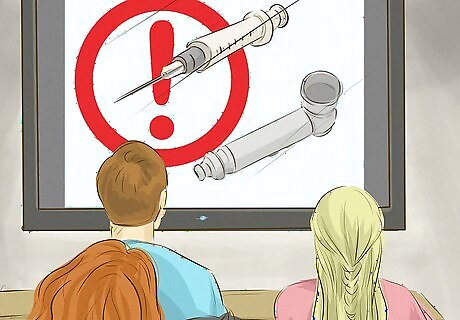
Organize drug education programs in your neighborhood. Schools, churches, and the police usually have resources that can help you establish a drug prevention fair to educate people on the dangers of drug use and how to prevent drug activity in your area.




















Comments
0 comment